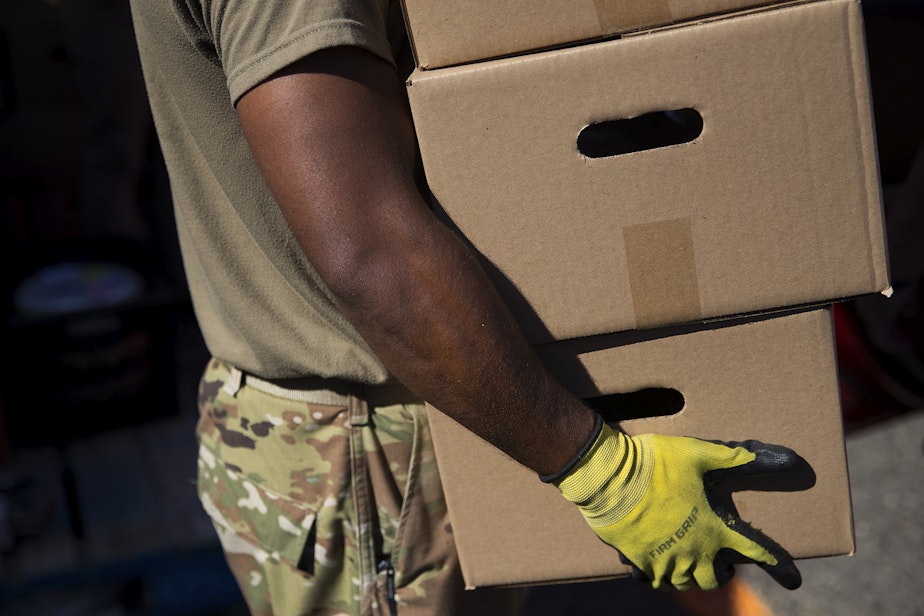This South King County church created a drive-thru food bank in response to the pandemic
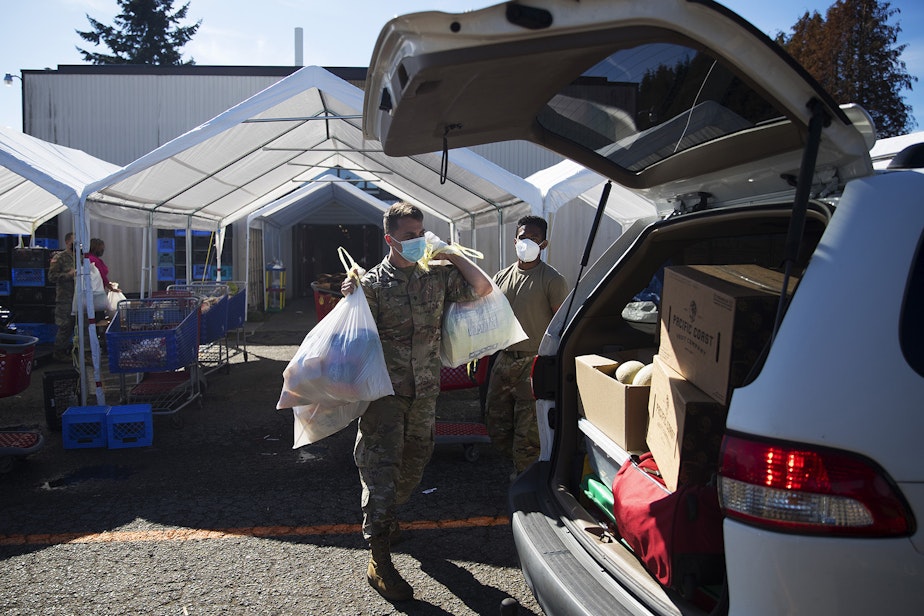
The Tukwila Food Pantry has been a lifeline for many South King County residents who have lost their jobs during the pandemic.
Like many local food banks, it saw a surge in demand. It went from serving 50 households a day, pre-Covid, to 500.
The pantry is at Riverton Park Methodist Church. It started out in the church basement, but during the pandemic, the operation moved outdoors. It doesn’t usually open until 10 a.m., but the line starts to form, sometimes as early as 7.
When it’s time, cars slowly drive through the parking lot. At the first stop, volunteer Oliver Kogod greets drivers and offers them two sizes of diapers, along with baby food and pet food.
“My university went online,” said Kogod. He didn’t want to spend the entire semester indoors looking at the computer, he explained, and decided to volunteer instead. “I’ll do this for the next couple of months.”
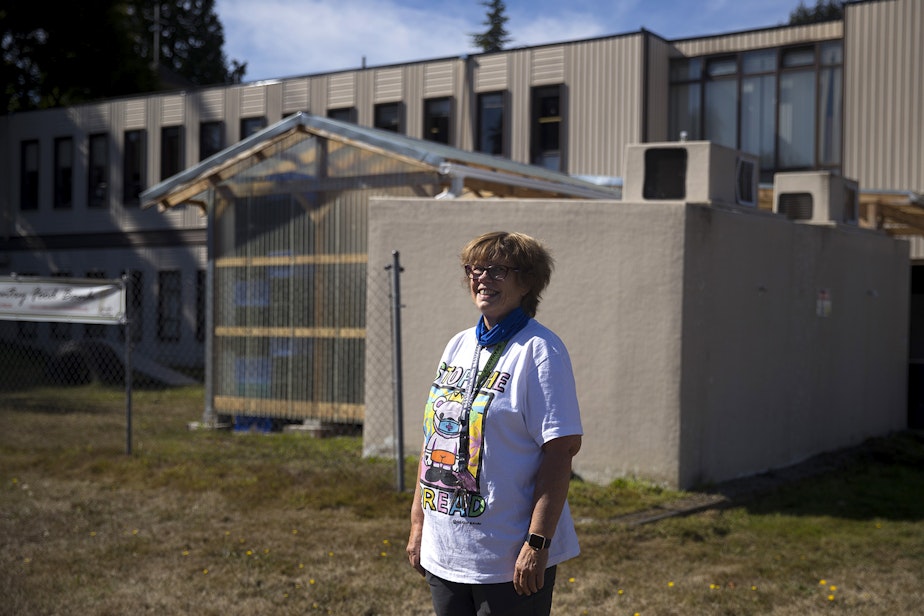
The next station is for food items. Pastor Jan Bolerjack greets a family and offers them cookies. Meanwhile, a couple of National Guard volunteers load up the trunk with dairy, some meat, grains, canned tuna, and fresh produce.
"I try to either have some treats or books out here for the kids so after they’ve waited in line, there’s something that they get just for themselves.”
Flora Caballero said she is thankful for the food pantry, after losing her job six months ago. Sometimes she gets a call from a friend to help her clean house. Otherwise, she has no other source of income and no other way to feed her three children.
“It’s hard because sometimes [I have ]no money for food, I come here,” she said.
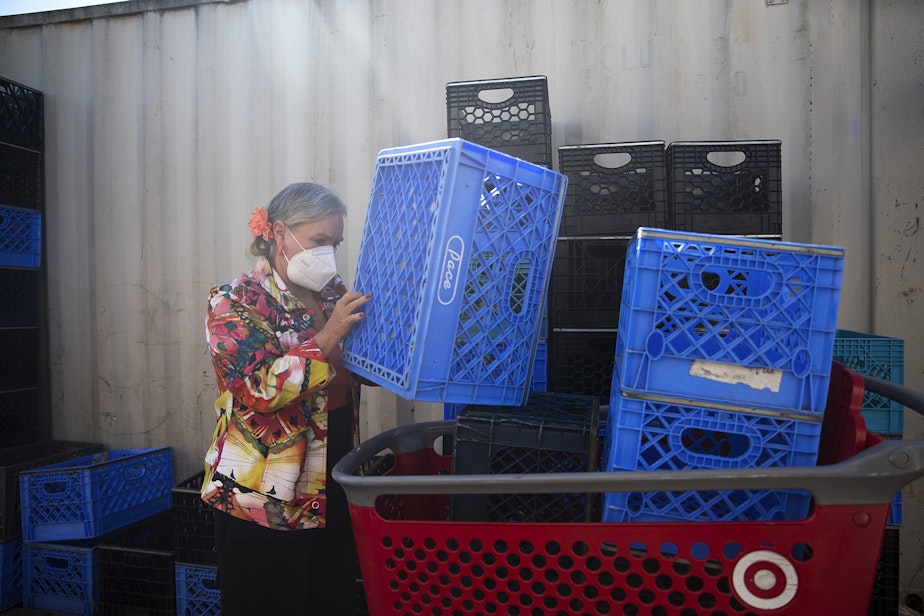
One in 10 people in King County does not have enough food to eat, according to a recent report published by the county. Another report, by the University of Washington, shows food insecurity is highest among people of color.
And it’s not just food that people are struggling with. Pastor Bolerjack said shelter has become a big issue, too. Before the pandemic, it was common for two, or sometimes three families to live in one place.
“And now when everybody’s having to stay home, those houses feel a lot smaller. And people are getting displaced. So suddenly they don’t have that couch to sleep on,” Bolerjack said.
Many of them work low wage jobs in hotels and restaurants. And many of them are waiting to be hired again after layoffs, or struggling with the few hours they get. In the meantime, the church has become their temporary home.
“We have 20 people sleeping in cars in our parking lot because it is a safe place to park,” she said. “So their cars are sort of landlocked here. And we have about 25 people living in tents who have been displaced for one reason or another.”
Moreover, the church has been helping families displaced by recent fires in South King County. Bolerjack said the silver lining is seeing the community come together. Still, there are things they have hard time providing — including diapers and hygiene products.
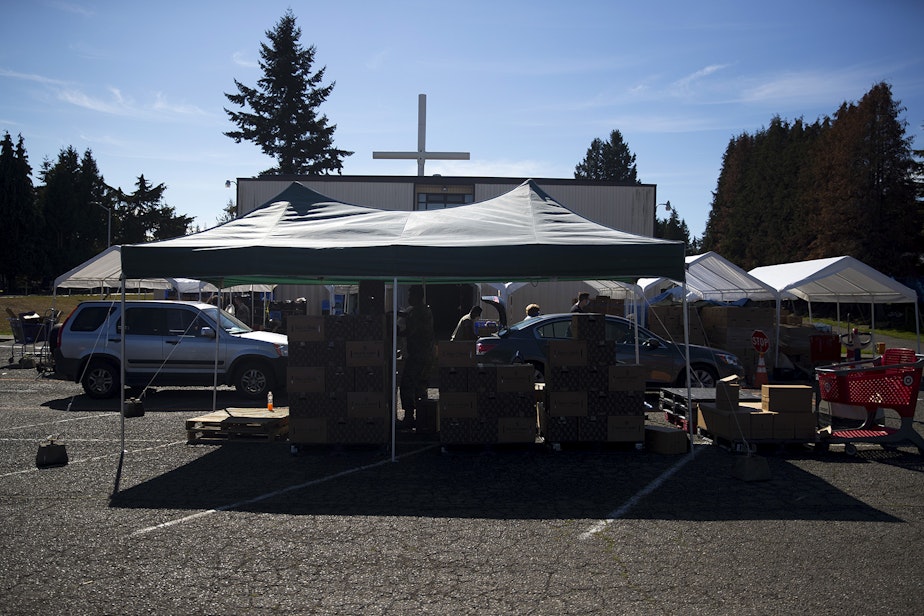
“A couple of times we’ve gotten, like eight pallets of toilet paper and you should see the people; they’re so excited to get toilet paper," she said. "What a sad statement that is about society when people have to get excited about toilet paper.”
While Bolerjack and the volunteers load up people’s cars, Adana Protonentis is working behind the scene sorting out fruit and packing them for the next round of distribution.
“I’m in grad school and I would be doing homework right now” otherwise, Protonentis said, adding that it’s a welcome distraction. The weather has made work easy.
Bolerjack said she is thankful they’ve been able to respond to the community’s needs. But she worries how they’ll be able to continue their work in the cold months ahead.
